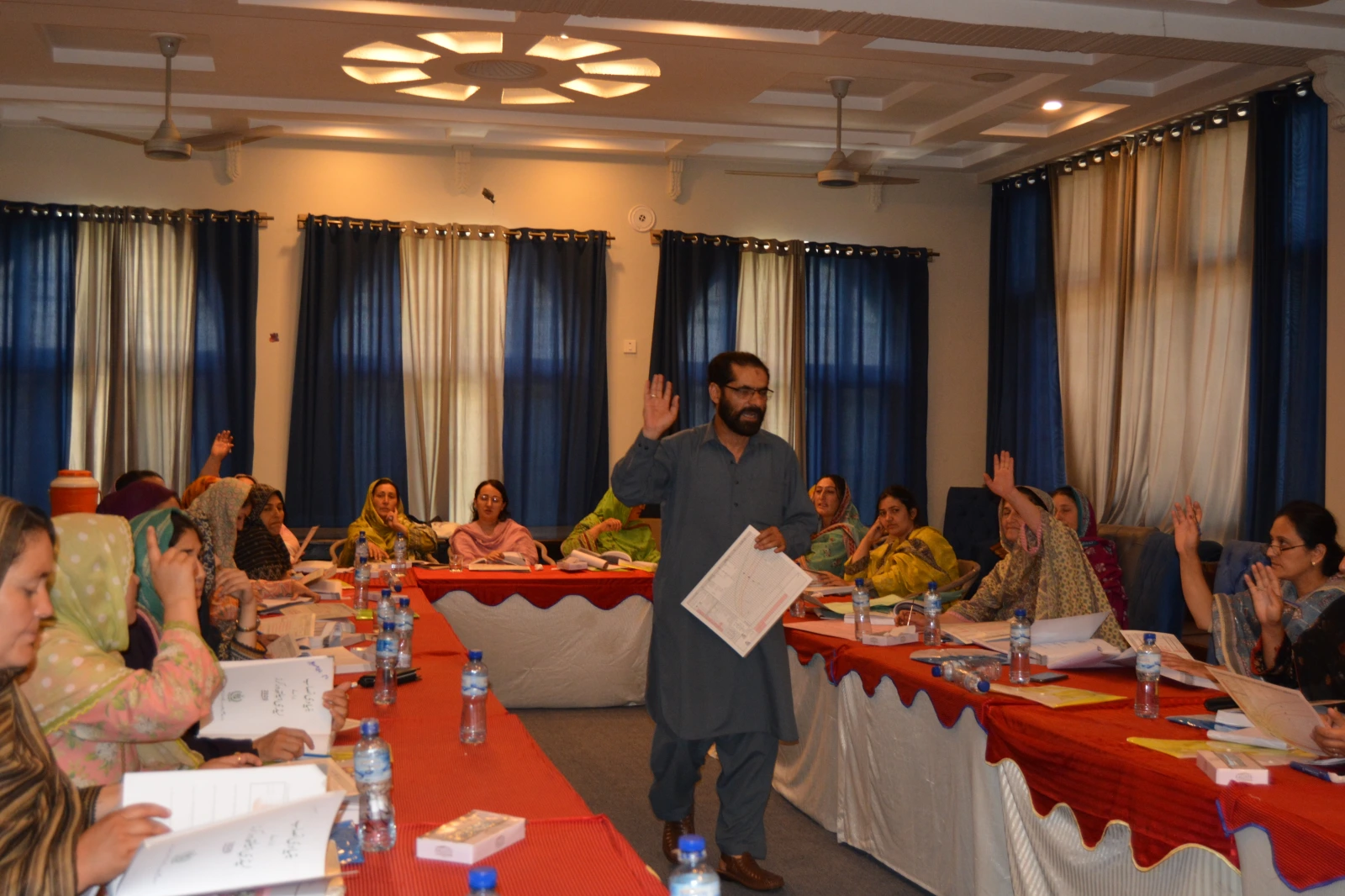Empowering Women,
Transforming Communities
The Lady Health Supervisor (LHS) program is changing lives and transforming communities, one village at a time. This inspiring story of empowerment and change showcases the incredible impact of dedicated women like Amina Bibi, who are bridging the gap between traditional practices and modern healthcare.
Amina Bibi, a newly trained Lady Health Supervisor in the village of Gojal, faced a significant challenge when she began her work. Her mission was to improve the health of mothers and children in a community deeply rooted in traditional practices.”When I first started visiting homes, many families were skeptical. They didn’t understand why they needed to change their ways,” Amina recalls.Despite initial resistance, Amina’s determination and patience paid off. She used her training to explain the benefits of modern healthcare practices while respecting local customs.
Your donation can help train more lady health supervisors like Amina and save lives in rural communities

Scaling Success
The success of the LHS program is not limited to individual villages. This growing network of trained healthcare workers is creating a ripple effect of positive change throughout the region.
With over 1,500 Lady Health Workers now being trained by supervisors like Amina, the future looks promising for Gilgit Baltistan.
"I didn't just tell them what to do, I showed them why it mattered," she explains.
The Lady Health Supervisor program, along with similar initiatives across Pakistan, has yielded impressive results:
- Prenatal Care: A 40% increase in prenatal care uptake
- Hospital Births: Increased from 30% to 65% in targeted areas
- Child Immunization: Rates jumped from 50% to 85%
These statistics demonstrate the profound impact of the program on maternal and child health in the region.
Help Us Expand Our Reach
Your support can help us train more Lady Health Supervisors and extend our impact to more communities. Join us in this life-changing mission. Donate today to make a lasting difference.
Will you support our work to make healthcare more accessible to communities in need?
Give now.
While the Fall 2024 Campaign is over, your support is still needed.
For decades, your generosity has contributed to AKF’s wide range of development activities around the world. With your help, we can continue this critical work during a time when the world needs us the most.
Give monthly to join iHope, a community of donors committed to sustaining AKF’s work today and in the future.
Make a one-time gift to support our work now.
AKF USA is a 501(c)(3) not-for-profit organization. Your donations are tax-deductible to the extent allowable by law.